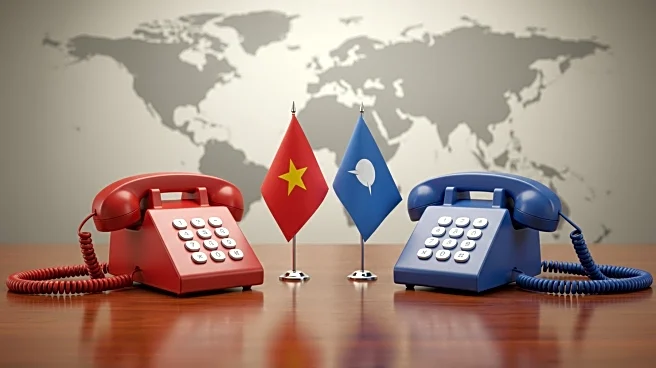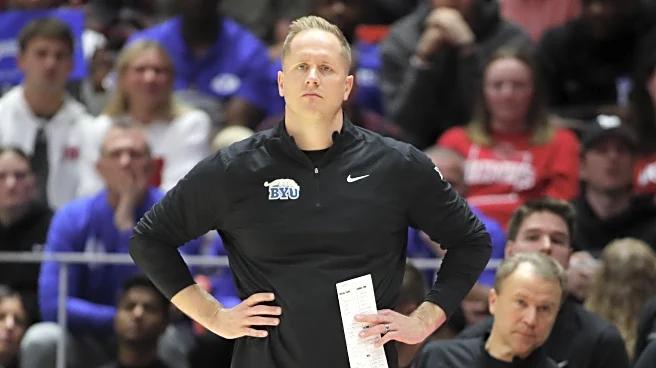What is the story about?
What's Happening?
Russian President Vladimir Putin surprised attendees at the Alaska summit by delivering his final remarks in English, a language he typically avoids during diplomatic engagements. Putin's use of English came in response to President Trump's suggestion of a future meeting in Moscow, to which Putin replied, 'And next time in Moscow,' without the need for translation. Historically, Putin has relied on translators during official meetings, despite being fluent in English and German. His proficiency in English was confirmed by Kremlin spokesperson Dmitry Peskov, who noted that Putin often understands English before receiving translations. This linguistic choice at the summit, which concluded without a resolution to the ongoing war in Ukraine, highlights Putin's ability to navigate diplomatic conversations in multiple languages.
Why It's Important?
Putin's decision to speak English at the summit may have strategic implications for international diplomacy. By showcasing his language skills, Putin could be signaling a willingness to engage more directly with Western leaders, potentially influencing future negotiations. This move might also reflect a tactical approach to managing perceptions and controlling the narrative in high-stakes discussions. For President Trump, the exchange suggests a possible continuation of dialogue with Russia, which could impact U.S. foreign policy and relations with European allies. The absence of a deal on Ukraine underscores the complexity of geopolitical tensions, with language playing a subtle yet significant role in diplomatic interactions.
What's Next?
The prospect of a future meeting between Putin and President Trump in Moscow could lead to further diplomatic engagements aimed at addressing unresolved issues, such as the conflict in Ukraine. Stakeholders, including European leaders and international organizations, may closely monitor these developments, assessing potential shifts in alliances and strategies. The use of English by Putin might encourage more direct communication in future summits, potentially altering the dynamics of international negotiations. Observers will likely scrutinize any upcoming interactions between the two leaders for signs of progress or changes in diplomatic stances.
Beyond the Headlines
Putin's linguistic choice at the summit may have deeper implications for global diplomacy. It raises questions about the role of language in international relations and how it can be used to influence perceptions and outcomes. The ability to communicate in multiple languages can be a powerful tool for leaders, offering flexibility and control in negotiations. This event also highlights the cultural dimensions of diplomacy, where language proficiency can enhance or hinder communication between nations. As global leaders navigate complex geopolitical landscapes, the strategic use of language may become increasingly important in shaping diplomatic engagements.















